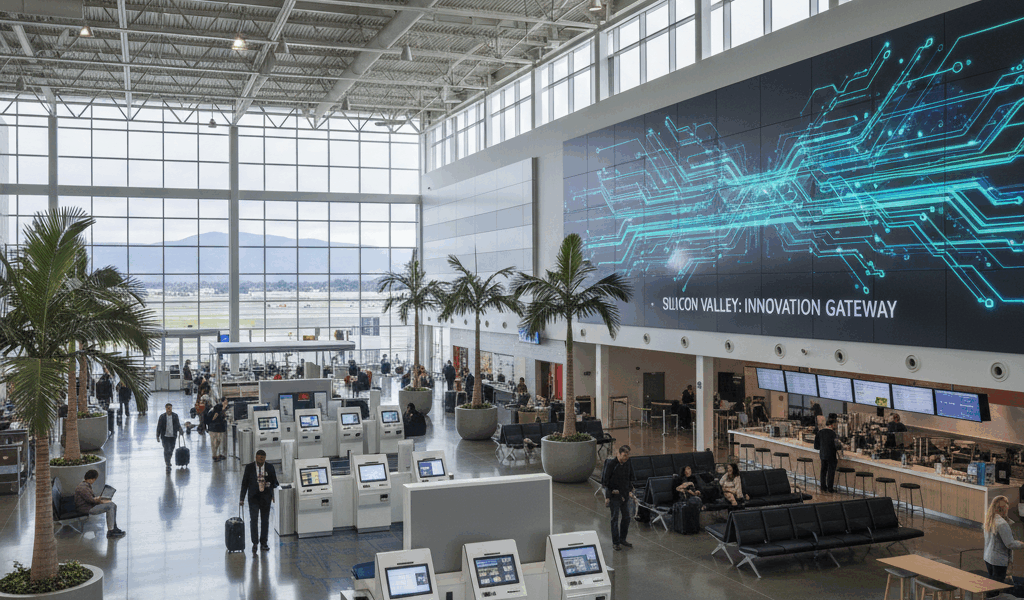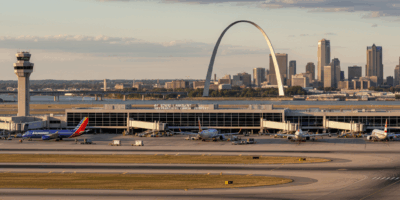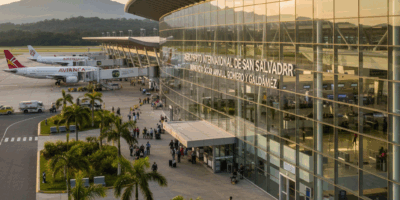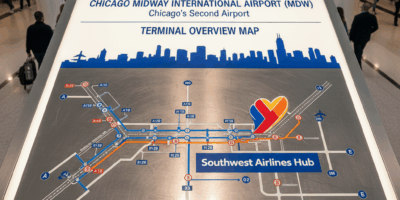Overview of San Jose Mineta Airport
San Jose Mineta Airport, formally known as Norman Y. Mineta San Jose International Airport, serves the San Francisco Bay Area. Located in the heart of Silicon Valley, it offers convenient travel options for both business and leisure travelers.

History and Naming
Opened in 1945, the airport is named after Norman Y. Mineta, a San Jose native and the first Asian American U.S. Secretary of Transportation. His contributions to transportation policy and public service led to this tribute in 2001. The airport started as a small aviation field and has significantly expanded over the years to accommodate growing passenger numbers.
Facilities and Terminals
The airport consists of two primary terminals, Terminal A and Terminal B. Terminal A, opened in 1990, houses major airlines like American and JetBlue. Modern amenities and services ensure a smooth travel experience. Terminal B opened in 2010 and is a hub for Southwest Airlines, focusing on efficiency with an environmentally sustainable design.
Transportation and Accessibility
Accessibility is a strength of San Jose Mineta Airport. Located just a few miles from downtown San Jose, the airport is easily accessible by car, taxi, or public transportation. The VTA light rail system connects the airport to key points in the city. For those driving, ample parking options range from short-term lots to long-term parking garages.
Expansion and Development
Significant expansion projects have shaped the airport’s growth. A recent major project was the renovation of Terminal B, which increased capacity and improved traveler comfort. Future plans include updating infrastructure to accommodate increasing passenger demand and to incorporate more sustainable energy solutions.
Airlines and Destinations
- Major airlines operating here include Southwest, Alaska Airlines, Delta, and United.
- Destinations cover major U.S. cities and international routes to Mexico and Canada.
- Southwest Airlines offers the most connections, focusing on domestic flights.
- International flights are available, mainly serving North American destinations.
Passenger Services
The airport provides various passenger services to enhance the traveler experience. Free Wi-Fi is accessible throughout both terminals. Charging stations and work areas support busy business passengers. Dining and shopping options are plentiful, with both local and national brands represented. Convenience stands offer essentials and travel necessities.
Security and Efficiency
TSA pre-check and CLEAR lanes are operational to facilitate quicker security processes. The airport emphasizes short wait times, with security checkpoints designed to handle peak travel efficiently. Advanced technology and staffing are utilized to maintain a high level of service and security.
Environmental Initiatives
Sustainability is a key focus. San Jose Mineta Airport seeks to reduce its carbon footprint through initiatives such as energy-efficient lighting and substantial recycling programs. The design of Terminal B incorporates features aimed at green building standards. A solar energy project is underway to further decrease reliance on conventional power sources.
Community and Economic Impact
The airport contributes significantly to the local economy. Generating jobs and revenue, it is a vital economic driver for Silicon Valley. Collaborations with local businesses and organizations aim to foster community ties and support regional growth.
Technology and Innovation
Located in Silicon Valley, the airport embraces technological advancements. Digital displays provide real-time information on flights and airport services. Innovations in baggage handling and boarding processes reflect the region’s tech-forward mindset. Partnerships with tech firms explore immersive experiences and passenger convenience upgrades.
Future Prospects and Challenges
Looking ahead, the airport aims to expand its capacity and services. Balancing growth with environmental responsibility presents challenges. Plans include infrastructure enhancement and exploring alternative energy sources. The airport’s strategy focuses on improving passenger experience while maintaining safety and operational efficiency.
Recommended Aviation Gear
David Clark H10-13.4 Aviation Headset – $376.95
The industry standard for aviation headsets.
Pilots Handbook of Aeronautical Knowledge – $25.42
Essential FAA handbook for every pilot.
As an Amazon Associate, we earn from qualifying purchases.



